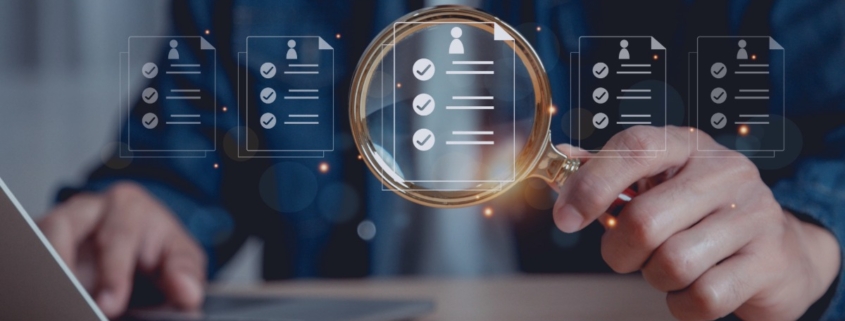How a Hospitality Recruitment Agency can transform your business: The smart solution to staffing challenges
Customer expectations are higher than ever and so are the pressures on employers. The success of any hotel, restaurant or event venue depends on its people: the chefs who deliver excellence under pressure, the waitstaff who create unforgettable guest moments and the managers who ensure every detail runs flawlessly.
But as demand fluctuates, finding and retaining top hospitality talent has become one of the industry’s biggest challenges. Skills shortages, seasonal spikes and rising turnover rates make it increasingly difficult for businesses to maintain service consistency without overextending their teams.
This is where a hospitality recruitment agency steps in, not just to fill vacancies, but to build a resilient, high-performing workforce. By aligning staffing strategies with your business goals, these specialised recruitment agencies help hospitality operators stay agile, compliant and customer-focused, even in the most unpredictable market conditions.
What is a Hospitality Recruitment Agency?
A hospitality recruitment agency specialises in sourcing, vetting and placing candidates across the hospitality sector. This includes roles in hotels, resorts, restaurants, catering companies and event venues.
Unlike general staffing firms, these agencies understand the unique requirements of the hospitality industry, the urgency of seasonal demand to the importance of personality, presentation and punctuality.
A reputable hospitality recruiter acts as both a strategic HR partner and a talent acquisition expert, offering temporary, permanent and outsourced staffing solutions.
Why the Hospitality industry faces unique staffing challenges
The hospitality industry operates at the intersection of service, experience and emotion. Making it one of the most people-dependent sectors in the world. Every guest interaction, from check-in to check-out or from the first course to dessert, depends on the performance, attitude and availability of your staff.
However, maintaining the right workforce in hospitality is far from straightforward. The sector’s dynamic, customer-driven nature means that staffing needs can change overnight, leaving hotels, restaurants and event venues scrambling to fill critical gaps. Let’s look at some of the unique challenges hospitality businesses face when it comes to staffing.
1.Seasonal peaks and tourism fluctuations
In South Africa, tourism and travel seasons significantly influence hospitality staffing requirements. The festive period, school holidays and peak summer months often bring an influx of guests, while off-peak months can be notably quieter.
For example, a coastal resort in Durban may need to triple its staff complement during December to meet tourist demand, whereas a conference hotel in Johannesburg might see spikes during corporate event seasons.
This fluctuation makes it difficult for businesses to maintain a consistent team size year-round. Over-hiring leads to unnecessary labour costs, while under-hiring can compromise service quality.
A hospitality recruitment agency helps bridge this gap, ensuring the right number of skilled staff are available when you need them most.
2. High staff turnover and workforce fatigue
The hospitality industry has one of the highest employee turnover rates across all sectors. Often due to long working hours, irregular shifts and the physically demanding nature of the work. Positions such as waitstaff, kitchen assistants and housekeepers experience especially high attrition rates.
When turnover spikes, managers are forced to redistribute workloads among remaining employees. This leads to burnout, stress and declining morale, which ultimately impact guest satisfaction.
A trusted hotel staffing agency in South Africa provides continuity by maintaining a pipeline of replacement candidates who can integrate quickly into your team, ensuring operations continue smoothly even when turnover occurs.
3. Shortages of specialised skills
While entry-level roles can often be filled quickly, certain hospitality positions require highly specialised skills and experience. Roles such as executive chefs, food and beverage managers or front-of-house supervisors demand a blend of technical ability, leadership and customer service finesse.
Unfortunately, there is a growing skills gap in South Africa’s hospitality workforce. Many establishments struggle to find candidates who possess both the qualifications and the interpersonal traits that the industry demands.
This is where partnering with an experienced hospitality recruitment agency becomes invaluable. These agencies actively cultivate networks of skilled professionals, both locally and internationally, ensuring businesses can source talent that meets their operational and brand standards.
4. The pressure to maintain service excellence
Hospitality is built on consistency but maintaining consistent service levels amid fluctuating staff numbers can be challenging. When short-staffed, even a small oversight, a delayed meal or a missed reservation, can negatively affect the guest experience.
A recruitment partner helps prevent these service lapses by ensuring you always have qualified, reliable and well-trained professionals available at short notice. By leveraging permanent and temporary staffing solutions, businesses can maintain operational excellence without compromising on service delivery.
5. Compliance and workforce management complexity
In addition to staffing volume challenges, hospitality businesses must navigate complex labour laws and compliance requirements. These include fair wages, overtime regulations and statutory benefits, all of which can vary depending on contract type and work duration.
For businesses managing multiple sites or seasonal staff, keeping up with these legalities can be time-consuming and risky. Partnering with a reputable hospitality recruitment agency ensures all placements comply with South African labour legislation, reducing administrative burdens and protecting your business from compliance pitfalls.
The Solution: Building a reliable staffing pipeline
In hospitality, staffing challenges are inevitable but they don’t have to disrupt your business. The key to overcoming fluctuating demand, high turnover and skills shortages lies in building a reliable staffing pipeline through a trusted hospitality recruitment agency.
Rather than hiring reactively when a crisis hits, a recruitment partner helps you take a proactive approach continuously sourcing, screening and preparing qualified hospitality professionals who can step in at a moment’s notice. Whether it’s chefs, waitstaff, front-of-house personnel or event teams, your agency ensures you always have access to skilled, dependable talent.
This partnership allows you to scale your workforce seamlessly during peak seasons or major events while keeping labour costs under control. It also safeguards service quality, so your guests never feel the impact of staffing shortages.
By working with an experienced hotel staffing agency in South Africa, you gain not just people, but a strategic workforce solution that keeps your business agile, compliant and ready to deliver exceptional guest experiences every single day.
Ready to strengthen your hospitality workforce?
Partner with MASA, South Africa’s leading hospitality recruitment agency and gain access to top-tier talent across the industry from front-of-house to back-of-house. Let us help you build a flexible, reliable and future-ready staffing strategy that keeps your business growing.
Contact MASA today and discover how our hospitality staffing solutions can elevate your service and scale your success.












